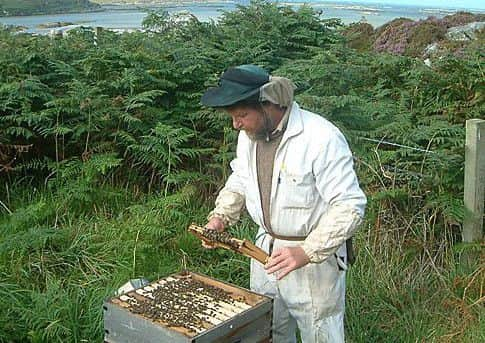World renowned speakers to attend bee conference


This year’s keynote speaker is Dr Sammy Ramsay from the University of Maryland. His interest in bees and beekeeping started 22 years ago, and shows no sign of waning.
His latest research sheds new light on and reverses decades of scientific dogma regarding Varroa, the pest considered the greatest single driver of global honey bee colony losses.
Advertisement
Advertisement
This exciting development is part of a major study showing that the Varroa mite feeds on the honey bee’s fat body tissue (an organ similar to the human liver) rather than on its “blood”. This discovery holds broad implications for controlling the pest in honey bee colonies. The results are expected to help scientists develop more effective pesticides and other treatments to help bees cope with a mite known to spread at least five viruses.


Dr Ramsay’s research help explain why Varroa mites have such detrimental effects on honey bees , weakening their immune system and making it harder for them to store protein derived from pollen and survive through the winter.
Also organisers are pleased to welcome renowned black bee breeder from Colonsay, Inner Hebrides, Andrew Abrahams. Andrew has kept bees commercially for 30 years and has wide experience of honey production and queen rearing.
Colonsay is home to one of Europe’s few populations of pure Black Bees (Apis mellifera) the UK’s native honey bee.
Advertisement
Advertisement
The bees are managed for commercial honey production and queen rearing, but are also of unique interest to honey bee conservationists and scientists studying bee diseases. The 50-60 stocks of Black Bee on Colonsay are self-sustaining. Years of selection have produced a productive and gentle strain. In 2013 the Scottish Government passed an order that will ensure Colonsay remains a reserve for Apis Mellifera.
Full details of the Conference can be obtained at www.inibeekeepers.com